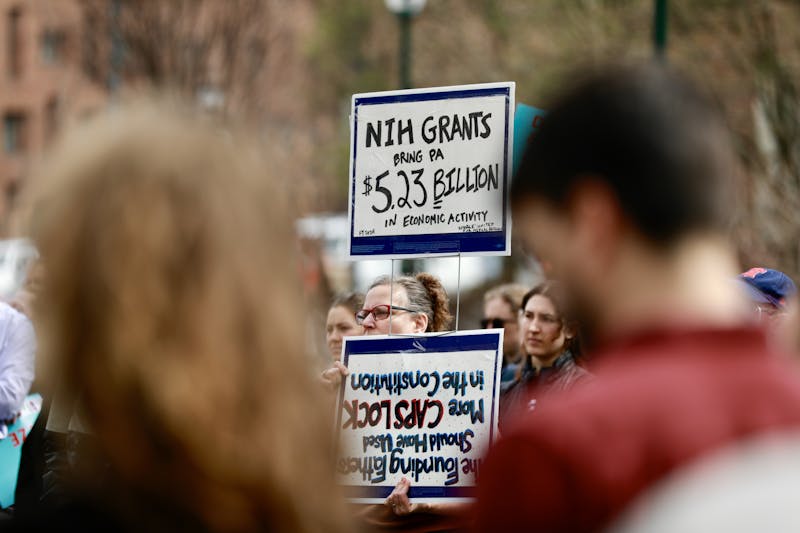SEPTA is in trouble. It is in need of $62 million to balance its budget, or it will be forced to make severe service changes. This cannot be allowed to happen. If it does, it will have dire repercussions that will resonate with Penn students, Philadelphia residents and citizens the commonwealth over.
In lieu of increased state funding, SEPTA will be forced to increase fares by 25 percent, lay off 1,400 employees, discontinue all weekend service and reduce service during the week. Realistically, this would cripple public transportation in the city and surrounding areas.
Of course, you couldn't tell that from the way legislators fled the capital last week. Lawmakers in Harrisburg have proven that they are loathe to let their recess for the year, which began an astonishing four days before Thanksgiving, be interfered with on account of a triviality such as the people's business, even if that means looking the other way as a public transportation crisis wreaks havoc on the lives of thousands of citizens.
If it is not doing so already, Penn must do whatever it can to help resolve this crisis. As a leading institution of higher learning, and perhaps more importantly, the largest private employer in Philadelphia, Penn's administration has some clout. At this point, they should expend whatever political capital they have.
Penn students use SEPTA to commute to and from class, or from campus to Center City. Also, many Penn employees use SEPTA to get to work. The reality of these cuts is that they may effectively put many of these employees out of a job.
The SEPTA cuts will have effects beyond the individual citizens they inconvenience. According to The Philadelphia Inquirer, Philadelphia's tourism industry generated $6.3 billion in 2003. For the 150,000 employees in the hospitality industry, many of whom commute to their jobs in the city, as well as the 19 percent of tourists who used SEPTA to get around Philadelphia this summer, these cuts will be devastating.
It is also worth noting that, for a city that desperately needs to retain graduates from local colleges, a dysfunctional public transportaion system is a major deterrent.
SEPTA cannot be allowed to make these cuts. Gov. Rendell's office is waiting until the legislative period officially ends to announce his plan for resolving the situation. It has been suggested that he might transfer highway money to salvage SEPTA; if that is what it takes, then so be it. Whatever must be done, should be done. That the funding crisis was allowed to go unresolved this long is a fundamental failure of our state government; allowing it to implode at this point would be a catastrophe.
The Daily Pennsylvanian is an independent, student-run newspaper. Please consider making a donation to support the coverage that shapes the University. Your generosity ensures a future of strong journalism at Penn.
DonatePlease note All comments are eligible for publication in The Daily Pennsylvanian.







